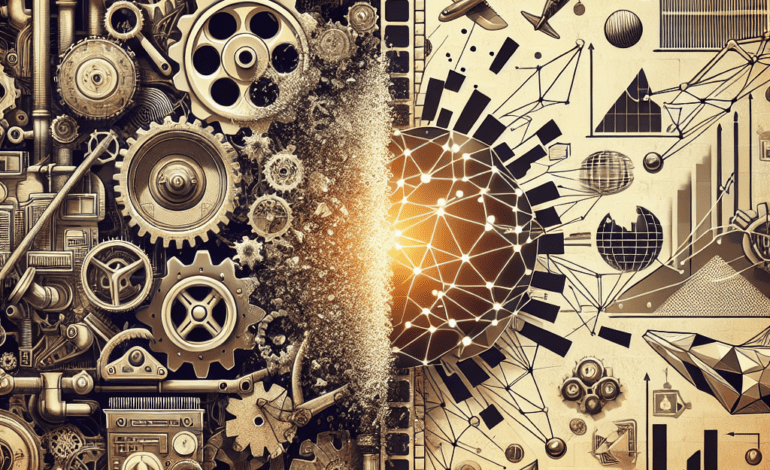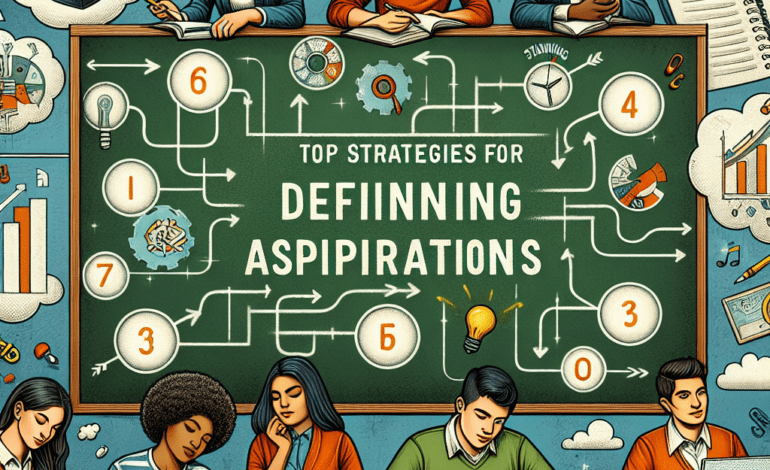<!DOCTYPE html>
<html lang="en">
<head>
<meta charset="UTF-8">
<meta name="viewport" content="width=device-width, initial-scale=1.0">
<title>The Future of Work: How Artificial Intelligence is Shaping Career Paths</title>
</head>
<body>
<h1>The Future of Work: How Artificial Intelligence is Shaping Career Paths</h1>
<h2>Table of Contents</h2>
<ul>
<li><a href="#introduction">Introduction</a></li>
<li><a href="#what-is-ai">What is Artificial Intelligence?</a></li>
<li><a href="#impact-on-job-market">Impact of AI on the Job Market</a></li>
<li><a href="#emerging-careers-driven-by-ai">Emerging Careers Driven by AI</a></li>
<li><a href="#skills-in-demand">Skills in Demand</a></li>
<li><a href="#conclusion">Conclusion</a></li>
<li><a href="#faqs">FAQs</a></li>
</ul>
<h2 id="introduction">Introduction</h2>
<p>Artificial Intelligence (AI) is no longer a futuristic concept; it is already transforming the way we live and work. From driving cars to personalizing marketing messages, AI's applications are vast and varied. As we stand on the cusp of another technological revolution, it's essential to explore how AI is reshaping career paths and the broader job market.</p>
<h2 id="what-is-ai">What is Artificial Intelligence?</h2>
<p>Artificial Intelligence refers to the simulation of human intelligence in machines programmed to think and learn like humans. AI can be categorized into two types: narrow AI, which is designed for specific tasks (like voice assistants), and general AI, which has broader learning capabilities (like human cognition).</p>
<h2 id="impact-on-job-market">Impact of AI on the Job Market</h2>
<p>AI's influence on the job market is substantial. While it stands to automate many routine tasks, thereby displacing certain job roles, it also generates new opportunities, much like past technological shifts. These changes necessitate a workforce that is adaptable and capable of leveraging new technologies.</p>
<h3>Automation and Job Displacement</h3>
<p>The automation of repetitive, rule-based tasks is one of the most immediate impacts of AI on the job market. Industries such as manufacturing, logistics, and even customer service are already experiencing significant changes due to AI-driven automation. However, this displacement does not spell doom for the job market. Many experts argue that these changes free up human workers to focus on more complex and rewarding tasks.</p>
<h3>Creation of New Job Roles</h3>
<p>AI also brings about the creation of new job opportunities that didn’t exist a decade ago. Roles in AI ethics, data science, and machine learning engineering are just a few examples. These positions not only require technical skills but also a keen understanding of how to apply AI ethically and effectively.</p>
<h2 id="emerging-careers-driven-by-ai">Emerging Careers Driven by AI</h2>
<p>As AI continues to develop, several new career paths are emerging.</p>
<h3>AI and Machine Learning Engineers</h3>
<p>These professionals are responsible for designing algorithms that can learn and make decisions. They work on developing models that can predict outcomes and optimize processes.</p>
<h3>Data Scientists</h3>
<p>Data scientists analyze and interpret complex data. They use statistical tools to help organizations make informed decisions, driving business strategies and innovations.</p>
<h3>AI Ethics Specialists</h3>
<p>As AI systems become more integrated into society, ethical considerations become paramount. AI ethics specialists are responsible for ensuring that AI applications comply with ethical guidelines and legal standards.</p>
<h2 id="skills-in-demand">Skills in Demand</h2>
<p>The rise of AI has shifted the demand for particular skill sets. Here are some critical skills needed in the AI-driven job market:</p>
<h3>Technical Skills</h3>
<ul>
<li>Programming Languages: Proficiency in languages like Python and R is crucial for roles in AI and data science.</li>
<li>Data Analysis: Skilled data analysts are needed to interpret the vast amounts of data generated daily.</li>
<li>Machine Learning: Understanding machine learning concepts and frameworks is essential for developing AI models.</li>
</ul>
<h3>Soft Skills</h3>
<ul>
<li>Problem-Solving: The ability to think critically and solve complex problems is in high demand.</li>
<li>Communication: Clear communication is essential, especially when explaining complex AI concepts to non-technical stakeholders.</li>
<li>Ethical Reasoning: With AI's increasing impact, ethical considerations are more critical than ever.</li>
</ul>
<h2 id="conclusion">Conclusion</h2>
<p>Artificial Intelligence is undeniably transforming the job market and career paths. While there is some apprehension regarding job displacement due to automation, the rise of AI also brings forth numerous opportunities and new roles that require a blend of technical and soft skills. To thrive in this changing landscape, individuals and organizations must adapt by embracing new technologies and fostering continuous learning and ethical practices.</p>
<h2 id="faqs">FAQs</h2>
<h3>Q: What industries are most affected by AI?</h3>
<p>A: Industries like manufacturing, logistics, healthcare, finance, and customer service are significantly impacted by AI, due to the automation of routine tasks and enhancement of complex decision-making processes.</p>
<h3>Q: Do I need a technical background to work in AI?</h3>
<p>A: While technical skills are highly valuable, there are also roles in AI ethics, project management, and strategy that do not require a deep technical background but benefit from a good understanding of AI concepts.</p>
<h3>Q: How can I prepare for an AI-driven job market?</h3>
<p>A: Staying updated on the latest AI trends, acquiring relevant technical skills (like programming and data analysis), and developing strong problem-solving and communication skills are crucial steps in preparing for an AI-driven job market.</p>
</body>
</html>




